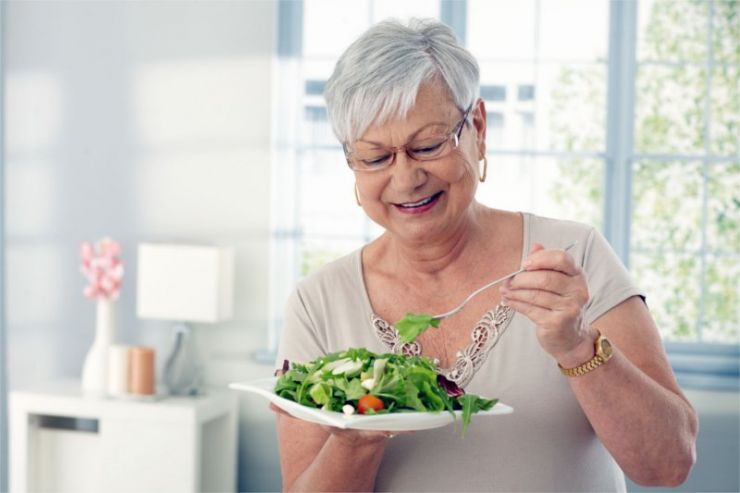In Part I of this series, we discussed the many types of foods that can negatively affect sensitive bladders. However, there are many foods that are easy on the bladder, and others that can actually affect your bladder health positively. The following guidelines will help you choose foods that will benefit, rather than harm, your health.
<< Read Incontinence Diet Part I: Foods to Avoid

Foods to Help with Incontinence
The first thing that must be mentioned when discussing incontinence dietary changes is monitoring your fluid intake. Too little water can lead to hydration and overly-concentrated urine, which can irritate the bladder. On the other hand, drinking too much can cause an overactive bladder that leads to more leaks. It is therefore important to get a doctor’s recommendation for the appropriate fluid intake that suits your body mass and health requirements. It is also a good idea to avoid drinking too much during the last few hours before bedtime, which may overwork the bladder and cause bedwetting issues.
In general, the rule of thumb to follow for incontinence and other bladder issues is to lean toward a more natural diet (especially home-prepared meals and snacks) that includes plenty of natural vitamins and antioxidants. The following are some foods that are great additions to an incontinence diet:
- Fiber: As mentioned in Part I of the Incontinence Diet series, constipation can often make urinary incontinence worse since the colon is located near the bladder and puts pressure on it when constipated. If this is an issue for yourself or a loved one, try increasing daily fiber intake with fiber-rich foods such as the following:
- Whole grain bread
- Whole grain cereal
- Whole grain crackers
- Barley
- Brown Rice
- Oatmeal
- Raw vegetables
- Beans (such as black beans, kidney beans, split peas, lentils, chickpeas and pinto beans)
- Protein: The following protein are great options for your daily does of protein since they are gentle on the bladder:
- Fresh lean meat
- Fish
- Shellfish
- Fruits: Fresh and dried fruit are also high in fiber. Try adding bladder-friendly fruits such as these to your daily diet:
- Blueberries
- Pears
- Nuts
- Avocados
- Vegetables with fiber: Besides tomatoes, most vegetables are a great snack to include in an incontinence diet, especially since many offer a high fiber count. Some fiber-rich vegetables include:
- Peas
- Sweet potatoes with skin
- Broccoli
- Carrots
- Cabbage
- Vegetables with magnesium: According to some studies, magnesium is a great addition to an incontinence diet since it may help reduce bladder muscle spasms and allow the bladder to empty fully, so you may want to consider magnesium-rich veggies:
- Corn
- Potatoes
- Vitamin D: Keeping your vitamin D levels normal has been proved to help avoid all types of pelvic floor disorders in women, including incontinence. The following are some good ideas of foods to focus on to get your vitamin D levels up:
- Fortified milk (if you know lactose agrees with your bladder)
- Eggs
- Fish
- Drink options: There are some drinks that are generally neutral when it comes to bladder health, and you may want to use these as a variation for your daily fluid intake. Of course, water is always the best option, but it shouldn’t do any harm to enjoy these drinks from time to time. Of the following options, cherry juice has the added benefit of controlling the odor of urine, which is an added plus when wearing incontinence products such as adult diapers and disposable pull ups.
- Water
- Grape juice
- Cherry juice
- Apple juice
- Caffeine replacements: Instead of coffee, tea and chocolate, try non-carbonated decaf drinks, low-acid coffee, non-citrus herbal teas and white chocolate (which contains less, in any, caffeine than other chocolate types).
- Spices: Rosemary, dill, thyme and garlic are bladder-neutral spices you can use to replace more offensive spices like chili and curry.

